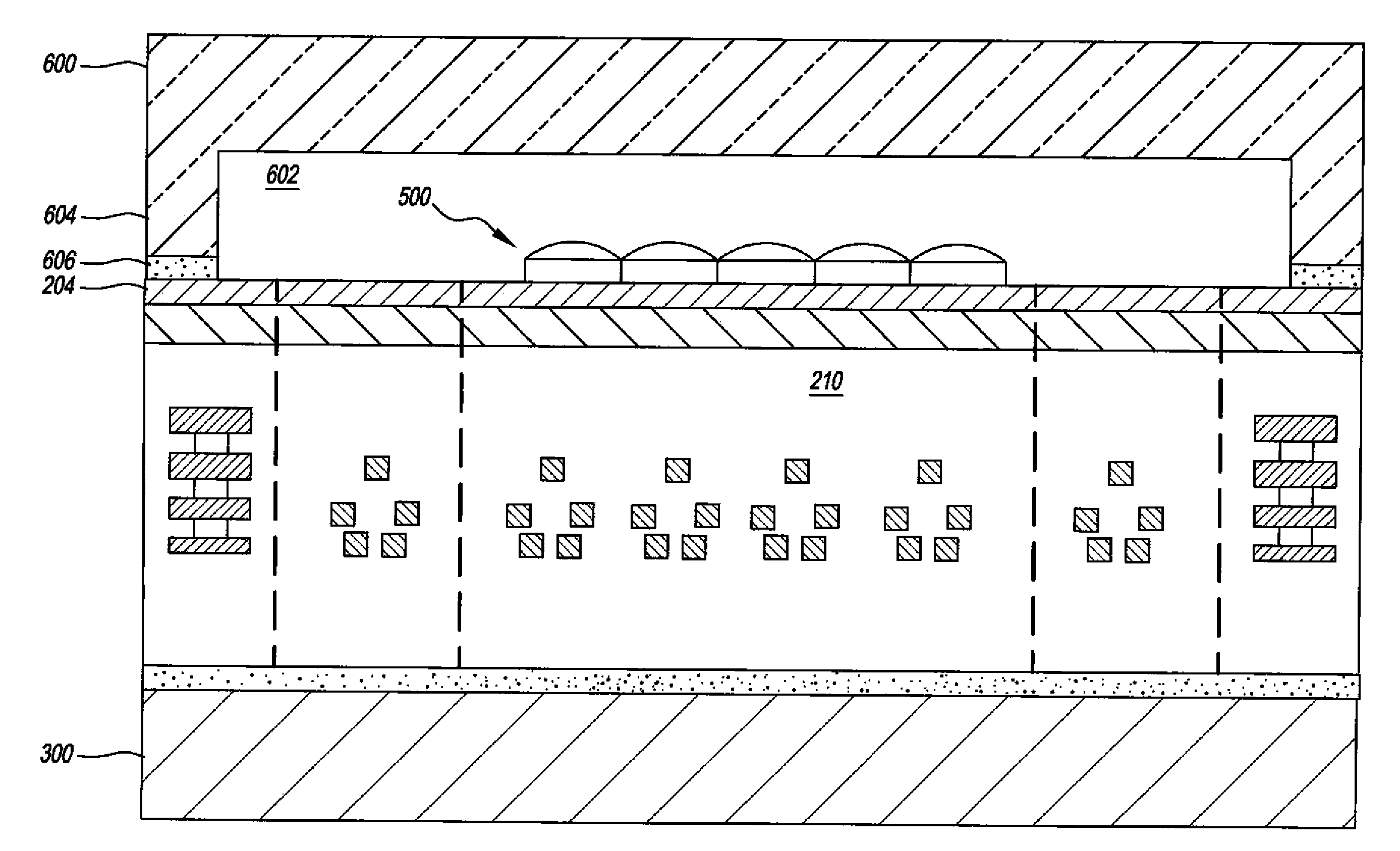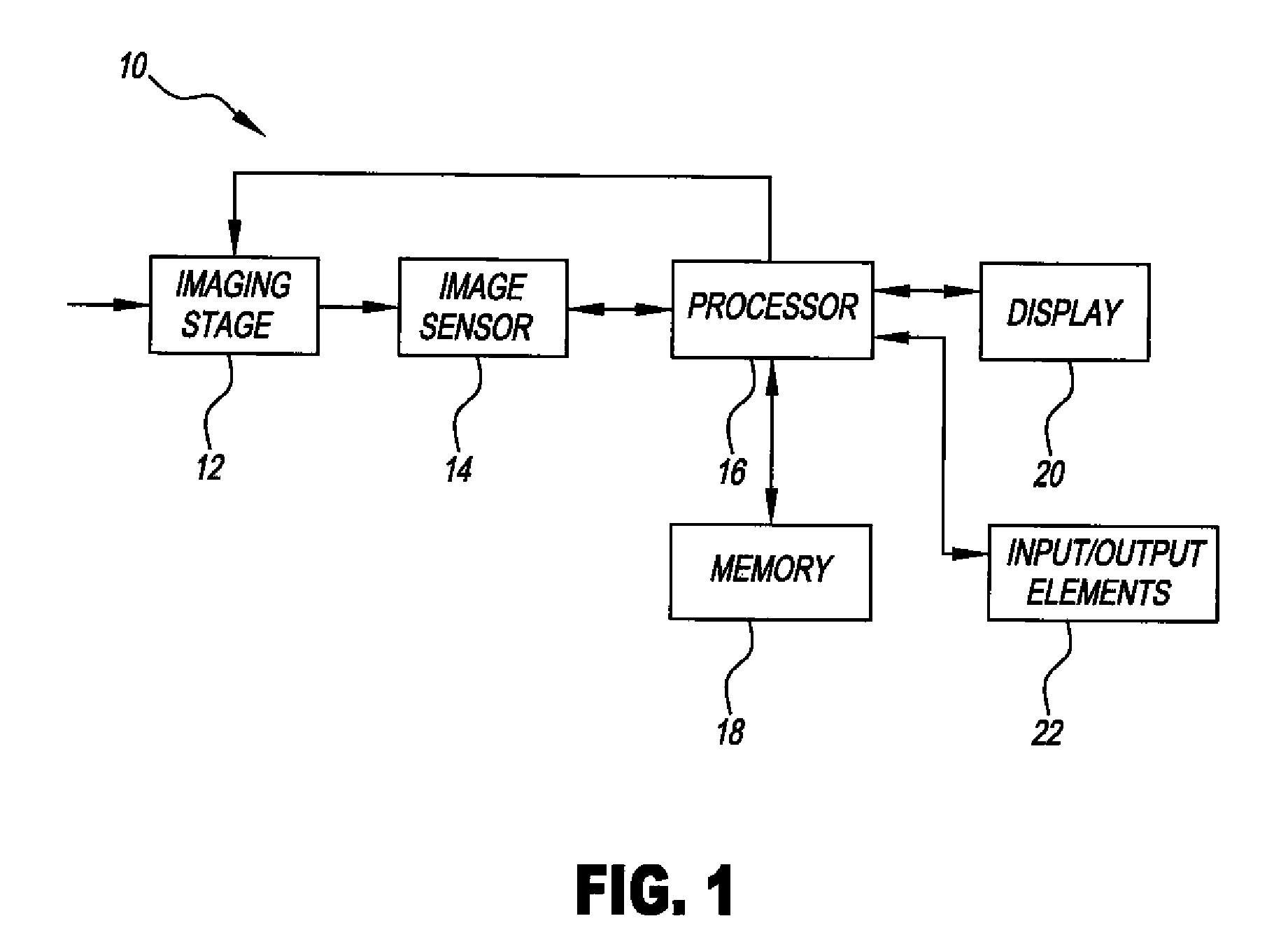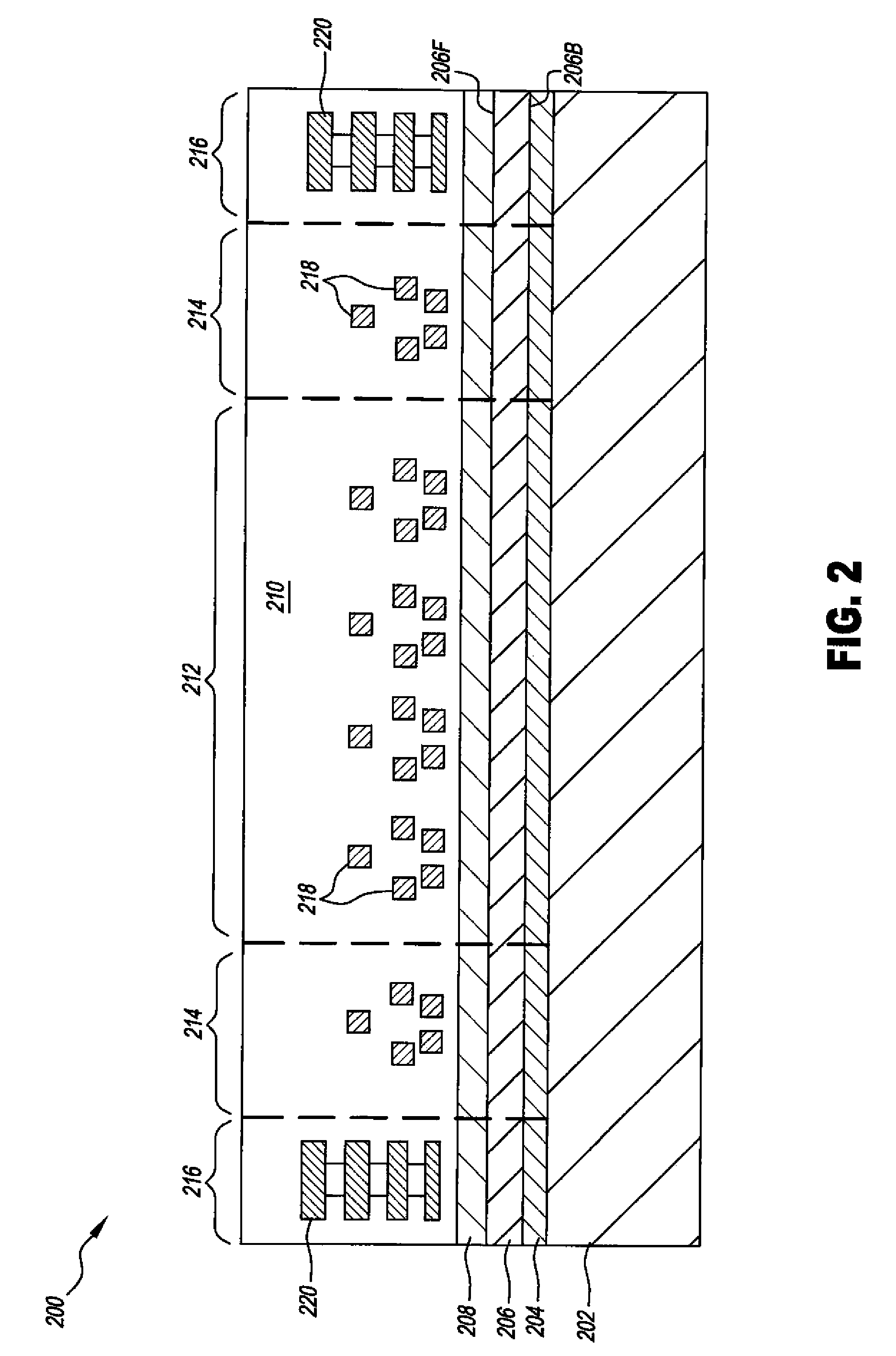Wafer level processing for backside illuminated sensors
a backside illumination and sensor technology, applied in the field of electronic image sensors, can solve the problems of insufficient conventional techniques, adversely affecting the fill factor and quantum efficiency of image sensors, and difficulty in processing backside illumination image sensors, so as to improve image quality, improve image quality, and increase the size or cost of image sensors
- Summary
- Abstract
- Description
- Claims
- Application Information
AI Technical Summary
Benefits of technology
Problems solved by technology
Method used
Image
Examples
Embodiment Construction
[0019]The present invention will be illustrated herein in conjunction with particular embodiments of digital cameras, backside illuminated image sensors, and processing techniques for forming such image sensors. It should be understood, however, that these illustrative arrangements are presented by way of example only, and should not be viewed as limiting the scope of the invention in any way. Those skilled in the art will recognize that the disclosed arrangements can be adapted in a straightforward manner for use with a wide variety of other types of imaging devices and image sensors.
[0020]FIG. 1 shows a digital camera 10 in an illustrative embodiment of the invention. In the digital camera, light from a subject scene is input to an imaging stage 12. The imaging stage may comprise conventional elements such as a lens, a neutral density filter, an iris and a shutter. The light is focused by the imaging stage 12 to form an image on an image sensor 14, which converts the incident ligh...
PUM
 Login to View More
Login to View More Abstract
Description
Claims
Application Information
 Login to View More
Login to View More - R&D
- Intellectual Property
- Life Sciences
- Materials
- Tech Scout
- Unparalleled Data Quality
- Higher Quality Content
- 60% Fewer Hallucinations
Browse by: Latest US Patents, China's latest patents, Technical Efficacy Thesaurus, Application Domain, Technology Topic, Popular Technical Reports.
© 2025 PatSnap. All rights reserved.Legal|Privacy policy|Modern Slavery Act Transparency Statement|Sitemap|About US| Contact US: help@patsnap.com



